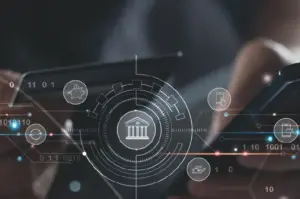Over time, the Internet and social media have had a great impact on healthcare and medicine. It is now being used by individuals and businesses to communicate, stay connected, and even market or buy/sell products or services. The use of social media in healthcare has skyrocketed in recent years. Healthcare companies are now turning to social media platforms to promote awareness, encourage patient engagement, and enhance accurate health messaging.
Some of the social media platforms available to healthcare companies include social networking sites, wikis, blogs, microblogs, media-sharing sites, and VR and gaming environments. Here are some of the ways that social media is helping managers enhance their services and stay connected with the patients:
The Evolving Role of Social Media in Healthcare
Information sharing
One of the main motives of social media is to help users access information quickly and communicate with one another easily. The use of social media is helping healthcare companies in sharing general healthcare tips and information with patients. Sharing news regarding outbreaks or health hazards is an effective way for healthcare facilities to provide accurate information to patients Health care companies can also use social media to reply to customer queries. It also helps to keep the public updated on the latest medical technology, deliver generic pre- and post-operative care information, and introduce new doctors on social networks.
Quality benchmarks
Setting benchmarks is an essential step in measuring and improving the performance of any company. Medical professionals can leverage the use of social media in healthcare to evaluate competitors and gain insights into the services they offer. By taking a look at different practices and their involvement, the health care industry has the ability to mimic these methods to enhance their own. Furthermore, the use of social media can provide doctors and physicians with immediate or real-time responses from individuals to help understand common reactions to medications, as well as an overall consensus from patients on innovations in health care.
Training
Several companies have begun to utilize social channels as a part of their training process. Trainees are encouraged to use particular hashtags on Twitter or join certain groups to engage one another during training sessions. This makes the training process more enjoyable and interactive. These training techniques provide trainees with a central location to ask questions and receive prompt responses. Social media gives participants the power to provide the trainers with immediate feedback on training sessions.
Communicate in crisis
In times of crisis, social media platforms can help provide minute-by-minute information to consumers. Through social media, hospitals and other medical organizations can deliver real-time updates on hospital capacity, operation status, and emergency room access. Moreover, having a strong and active social media presence facilitates companies to pass along information shared by organizations such as the Centers for Disease Control, the Red Cross, and or communicate with news outlets.
To know more about the trends and challenges




